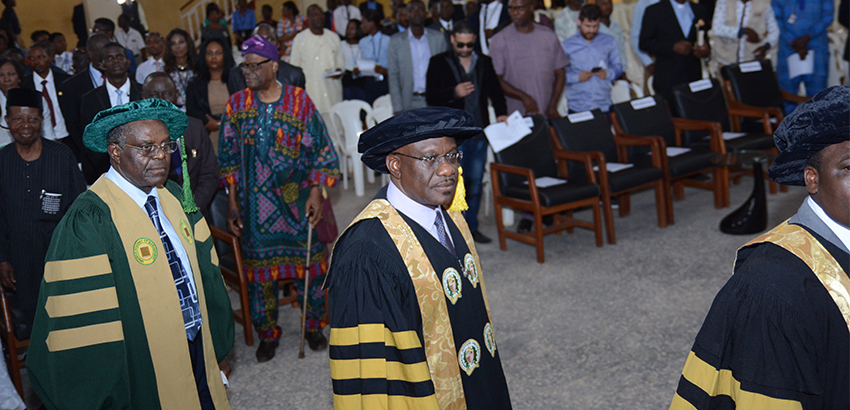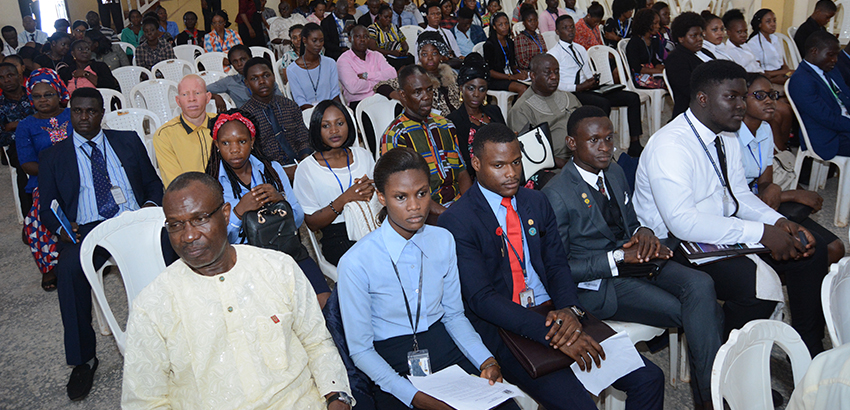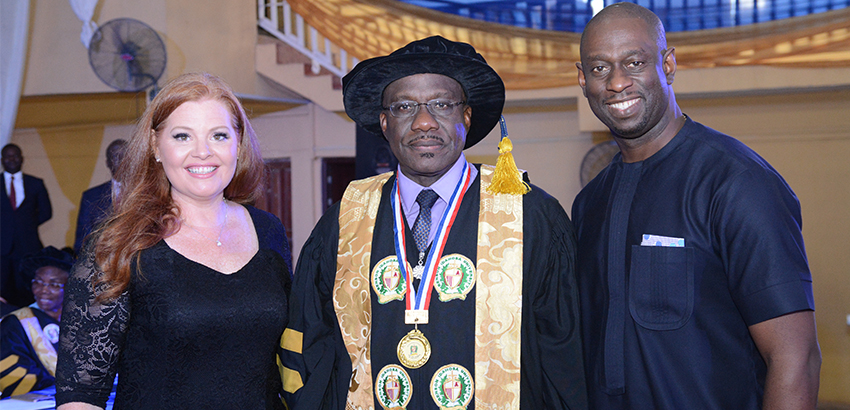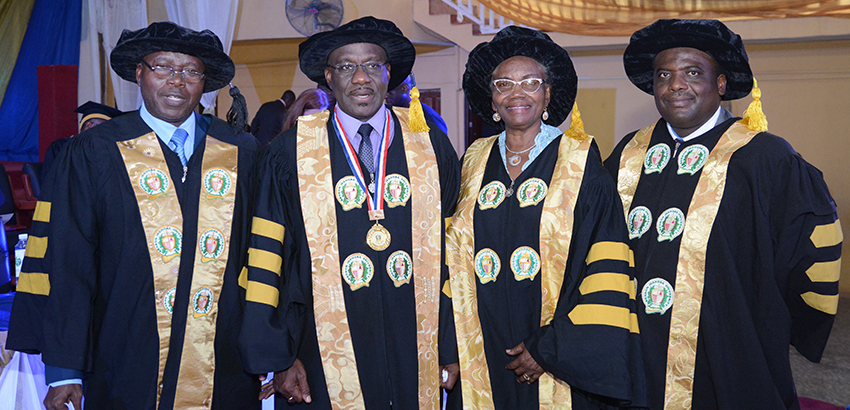More than 50 percent of Nigerians are Miserable- Prof. Sam Guobadia
The Deputy Vice Chancellor of Benson Idahosa University, Prof. Sam Guobadia has disclosed that over 50 percent of Nigerians are miserable because of the nation’s economic downturn.
Prof. Guobadia made this known while delivering an inaugural lecture titled “It’s the Environment.” The ceremony, which was held in the university main auditorium, marked the 7th inaugural lecture in the University.
The University don, cited a research program carried out by the World Economic Forums Misery Index which supported his position. The index, he mentioned, is a combined measurement of unemployment and the average rate of inflation in prices of goods and services in the country.
“The combined employment and underemployment rates in Nigeria’s recession prone economy pulled the unemployment rate in the country to well over 50 percent, fueling the risk of insecurity and youth restiveness,” he said.
He mentioned that the failure to develop the economy after five decades of independence is a result of deficiencies in the environment particularly in the area of infrastructure, energy, education, macroeconomic policies, agriculture, international trade and suffocating corruption.
The Professor of Economics who boasts of innovative ideas in economic development added that the alteration of the existing economic and political disequilibrium would lead to more efficient allocation of resources and the development of sustainable economic growth path.
He highlighted negligence, corruption, policy inconsistencies, government inimical policies, and harsh operating environment as factors responsible for Nigeria’s poor economic performance.
He added: “Until the environment in Nigeria is sanitized it will be difficult to apply any form of sensible, modern economic framework. This is because conventional economic models no longer work in Nigeria due to environmental factors. This means that without fixing the environment, achieving inclusive growth, reducing unemployment and underemployment, eradicating poverty and the ability to diversify the economy and compete globally will remain elusive.”
The astute scholar lamented that Nigeria invests just 3percent of its Gross Domestic Product (GDP) on education compared to South Korea that invests close to 60 percent of its Gross Domestic Product (GDP) on education and vocational trainings.
“Malaysia, Thailand and Singapore invest up 80 percent of its annual budget on capital projects; while Nigeria invests below the average of 24 percent of its annual budget on capital projects. Unarguably, Nigeria spends over 70 percent of its annual budget on recurrent expenditure, “he said.
On restructuring, he said: “If we do not restructure, if we did not revamp, if we do not change our institutions there would be difficulty in making economic progress because resources are not everything but the management of these resources and institutions establish the society.
“If we restructure, the strength and the resourcefulness of the people of the country will come out. Right now, many regions in the country are not pulling their weight because you have not unleashed them. If you unleash them then they will offer their best.
“Restructuring is not bad. What has produced the bad leaders is because we have weak institutions. Strong institutions will make good leaders come and go. Many of our leaders are good. President Buhari is not able to perform because we are faced with a deficient structure both politically and economically. The minute we revamp those structures, Nigerians will be unleashed and we will become one of the greatest economics of the world. Change the basic structure and Nigeria will grow.
The inaugural lecturer further recommended that improving governance, education, manpower development, eliminating corruption, modernizing of agricultural production, providing adequate soft and hard infrastructure in terms of policy and institutional reforms, judiciary, education as well as modern port facilities, railways and energy as the way forward for Nigeria
He said: “If we can fix the environment, then Nigeria will achieve economic emancipation.”
The Vice-Chancellor, Prof. Ernest Izevbigie, represented by a Professor of Accounting and former Vice Chancellor of University of Benin, Prof Richard Anao, congratulated the inaugural lecturer, noting that inaugural lectures were avenues through which scholars educate the public about their various achievements in research and learning.
He thanked Prof. Guobadia for delivering the seventh inaugural lecture of the University which he described as important and thoughtful.
The lecture was well attended by lecturers and students within and outside the country.



